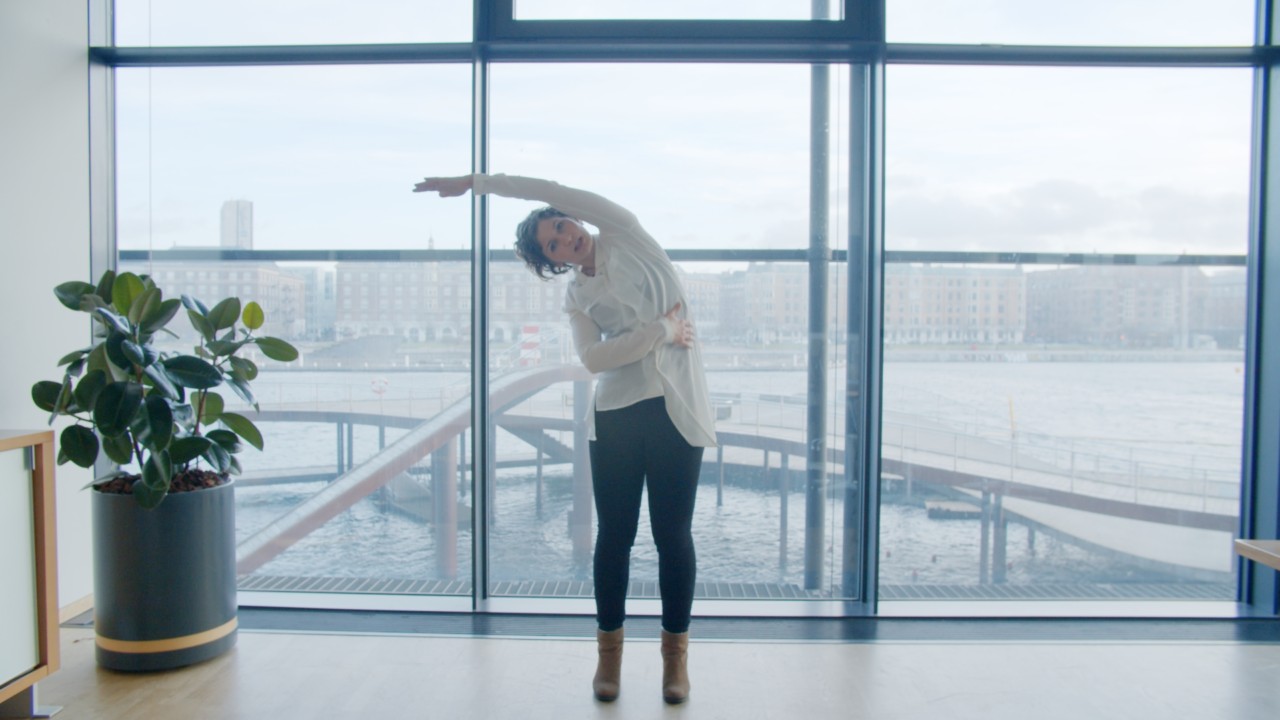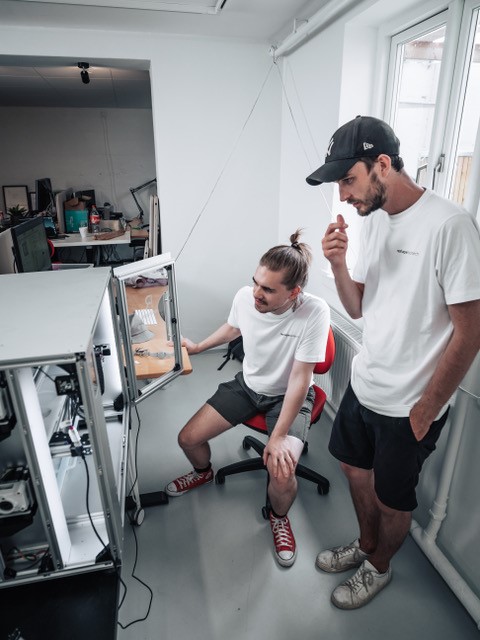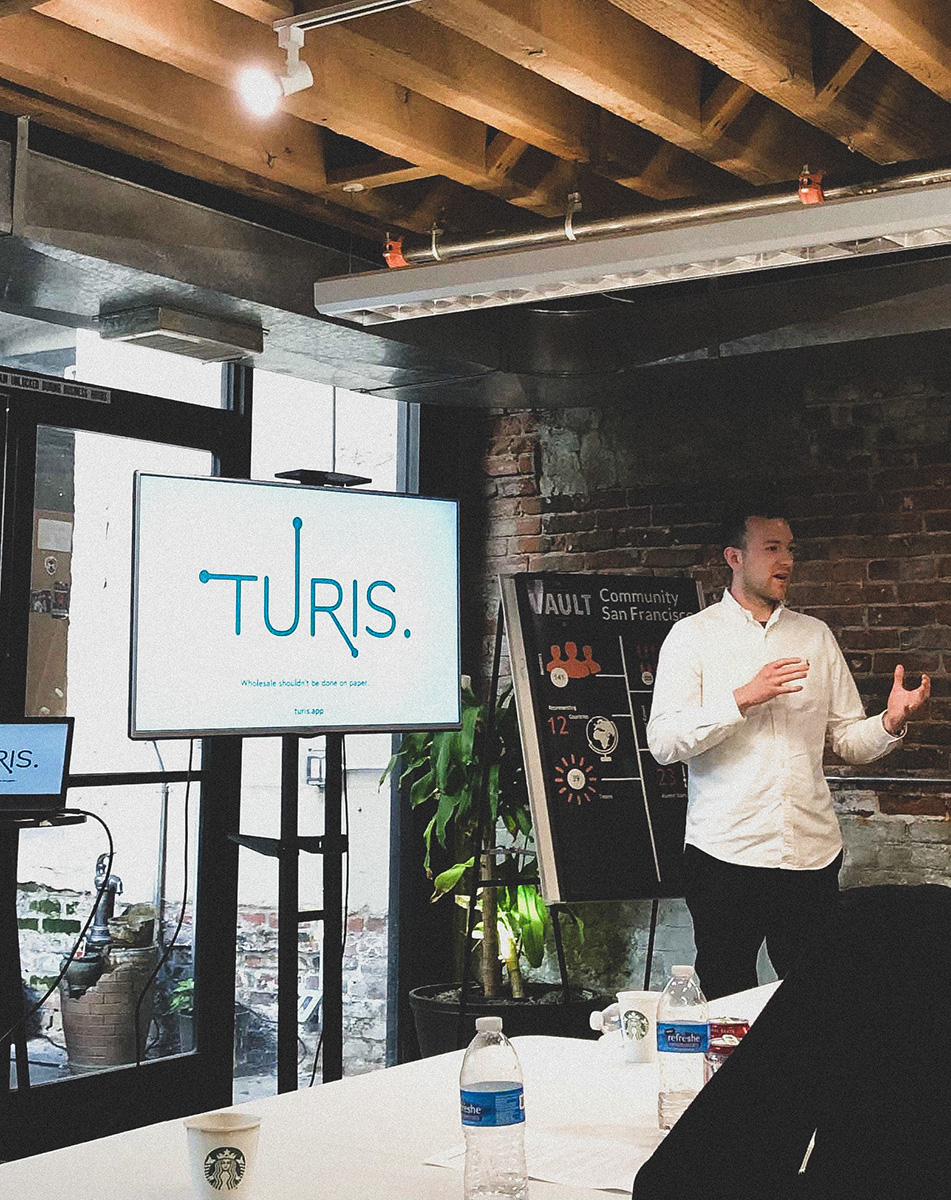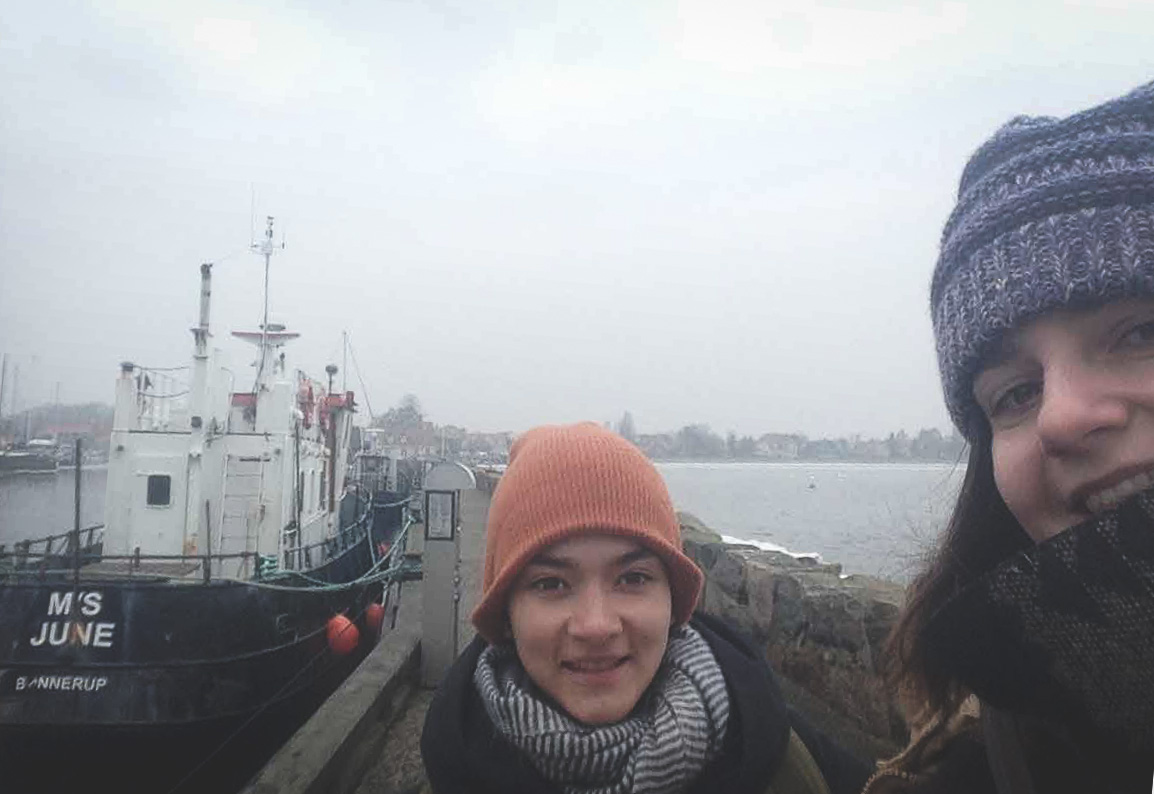Universitetsavisen
Nørregade 10
1165 København K
Tlf: 35 32 28 98 (mon-thurs)
E-mail: uni-avis@adm.ku.dk
—
Student life
As student-founded companies, they wanted to make their mark on the world. Now, after riding the yo-yo up and down the corona year 2020, they are surviving. And even thriving.
In the deep depths of the corona spring of 2020, you would not have bet on the survival of any business idea or venture from student entrepreneurs. But as the world’s economy ground to a halt, some start-ups made their way through, and some took off.
With customers avoiding physical contact and spending, and businesses trimmed back to bare essentials, the successful student start-ups that the University Post surveyed have been plain lucky. But they have also turned the fact that they are newcomers in the world of business to their advantage.
Take Pleaz for example, a platform that promotes active breaks for staff that was founded by Matias Welsien Thomasen, Micki Kold Nagel and Pernille Snitkjær who as students represent sports science, business administration and psychology at the Copenhagen Business School and the University of Copenhagen respectively.
Pleaz
What does it do? Platform for staff ‘active breaks’
Founded: Product January 2020. Company 2020
Founders: Mathias, sports science student at UCPH, Micki Kold Nagel, business administration and psychology student at CBS, and Pernille Snitkjær sports science student at UCPH.
Biggest challenge: To keep up with demand. Scaling the business.
University-affiliated hub or network: SUNDhub
With the onset of corona we had a lot of deals fall though. Everyone was on in panic mode. We had a deal for half a million kroner that fell to the floor.
Carl-Emil Grøn Christensen, Reshape Biotech
They had a finished product in January 2020, just before the corona crisis hit Europe.
Now, according to Matias Thomasen, their biggest challenge is »to follow the demand from the corona crisis. When corona hit, we found that the problem we were trying to solve just got a whole lot bigger,« adding that »our biggest challenge was not having a business model that could quickly grow at scale.«
Pleaz has now signed the global food giant Nestlé for Nordic locations. This was the moment Matias Welsien Thomasen realised Pleaz was a success:
»That final confirmation was a proof of concept, and we knew we had one happy customer but also the chance to sign a lot of happy customers,« he says.
For many, the start-up businesses’ products and services had been set to be signed and sealed. Now they were suddenly cancelled with corona.
Reshape Biotech
What does it do? Automates the laboratory work associated with solid media analysis in biotech
Founded: 2018
Founders: Carl-Emil Grøn Christensen, Daniel Storgaard, Magnus Madsen
How many people: 5 full time, 3 part time
Biggest challenge so far: The onset of corona
That moment you realised Reshape Biotech was a success: »When we realised that the customers were willing to pay for the solution to their problems«
University-affiliated hub or network: DTU Skylab.
Like Reshape Biotech. It is a company that automates the work with petri dishes and microtiter plates in laboratories, and was spawned in 2018 out of the entrepreneurial community at the Technical University of Denmark’s (DTU) Skylab.
Reshape Biotech’s customers are big companies, and the corona crisis had these customers cut back on new research and development spending.
As Carl-Emil Grøn Christensen of Reshape Biotech put it, with »the onset of corona we had a lot of deals fall though. Everyone was in panic mode. We had a deal for half a million kroner that fell to the floor,« he says, but adds that »luckily we have got past this now.«
When you start getting leads that are requesting to purchase your product with no prior dialogue, that’s when you really start feeling that this is going to be a huge success.
Casper Groot, Turis
While the corona crisis brought on a unique set of challenges for aspiring entrepreneurs, other hurdles remained the same. Like getting the first paying customer.
Like Turis, for example, an ecommerce platform for business-to-business transactions that was started up by Casper Groot and Dan Christoffersen from the Copenhagen Business School and University of Copenhagen respectively.
Turis
What does it do? Easy business-to-business transactions (eCommerce)
Founded: 2019
Founder: Casper Groot (CBS, E-Business) and Dan Christoffersen (Agricultural Economics)
How many people: 10
Biggest challenge: »Launching any product is tough. One thing is timing and the big question of ‘when is the product ready?’. The answer, for most founders, is ‘it’s almost ready!!’ That ‘almost’ can really go for a long time and you end up launching much later than you actually should.« Casper Groot
That moment you realised Turis was a success: Getting the first customer and seeing that the service you created solves a real life pain for the target group
University-affiliated hub or network: Science Innovation Hub
»As we develop and sell software, a huge challenge is getting your first customer. In software, most customers will only buy into a product that has a significant amount of users that they can relate to. It’s really a catch-22 situation for quite some time when you launch your product or service and the only thing you can do is to convince your potential customers that your new product is much better than what’s generally available on the market,« he says.
But then, suddenly, for the most fortunate of the entrepreneurs, the spell is broken and the customers are reeled in.
»When you start getting leads that are requesting to purchase your product with no prior dialogue, that’s when you really start feeling that this is going to be a huge success. We’ve been fortunate enough to experience that quite early,« says Casper Groot.
As Turis offers a tool that digitalises work processes, the general outlook for the company is good at a time when companies are being forced to lay off staff, he adds.
Blue Lobster is a sustainable fish marketplace that was set up in 2018 by Christine Hebert and Nima Tisdall from the University of Copenhagen and Copenhagen Business School respectively.
Blue Lobster
What does it do? Matches fishermen with chefs and consumers
Founded: 2018
Founder: Christine Hebert and Nima Tisdall
How many people: 12
Biggest challenge: »As a marketplace connecting low impact fishermen with sustainably minded chefs, our biggest challenge is making sure that we grow supply and demand simultaneously. In order to be accessible to larger buyers like canteens and help the fishermen sell everything they land, we are continuously working towards finding a scaleable way to process some of the fish into fillets,« Christine Hebert, cofounder of Blue Lobster
That moment you realised Blue Lobster was a success: When fishermen started checking orders on the app.
University-affiliated hub or network: CSE (Copenhagen School of Entrepreneurship)
One of our fishermen got onto the app and started actively checking what orders were coming in from nearby restaurants and claiming and fulfilling those orders on his own – without any prompting from our side. That was really exciting.
Christine Hebert, Blue Lobster
Their Blue Lobster app already has 12 staff and helps get fresh fish directly from individual fishermen to restaurants.
Christine Hebert from Blue Lobster also points to the first customer as something that she remembers as a point of no return:
»The chefs were relatively easy to get on board to the platform once they saw the quality of the fish that was brought directly from the harbour to their kitchen. The fishermen were much more sceptical, and at the beginning, we communicated with them via text or calling«.
»The fishermen saw the value of working with us because they could earn much more by selling directly to the end consumer and cutting out the usual middlemen, but they were resistant to using an app,« she remembers.
But something happened that had Christine Hebert and Nima Tisdall knowing that their concept worked:
»One of our fishermen got onto the app and started actively checking what orders were coming in from nearby restaurants and claiming and fulfilling those orders on his own – without any prompting from our side. That was really exciting,« she says.
Blue Lobster is an example of something that many of the new student start-ups have in common. Even, or especially, during times of economic uncertainty. Their business idea has to do with using technology for disintermediation or cutting out the middlemen in a supply chain or between a producer and a consumer.
If we had had access to experienced ressources in the early stages of our venture, it would have dramatically accelerated our trajectory,
Oscar Almstrup, LegalHero, on university hubs
A bit like LegalHero, a company started by two law students from the University of Copenhagen that matches legal counsellors with clients.
LegalHero
What does it do? Matches legal counsellors with clients
Founded: 2016
Founders: Kristian Anker (law) and Oscar Almstrup (law)
Biggest challenges: To build solid technology. Find and hire great software developers. Establish themselves as a credible player.
University-affiliated hub or network: None
As students abroad and at home, Oscar Almstrup and Kristian Anker were exposed to how technology could be used to make the legal industry better for clients and lawyers.
»The first thing we did was to build a chat bot that knew almost everything about consumer regulation. Fast forward to today, LegalHero is a ‘neo law firm’ with over 150 specialized legal professionals and a platform on its way in the UK,« says Oscar Almstrup.
The goal of the business has less to do with their own personal success, and more about transforming the whole legal industry. Nothing less, according to Oscar Almstup:
»We don’t see success as a number, metric, or a key point indicator, but rather as to which degree LegalHero has actually made an impact in the legal industry across all of Europe. Our primary goal has always been to create a digital platform that would transform and better the worklife for both lawyers and clients. It has been our goal since the beginning and we are extremely dedicated to fulfill that one ambition«.
LegalHero is exceptional among the student start-ups that the University Post surveyed in that it was not hosted by any university-affiliated hub, incubator, network for start-ups.
Hubs, incubators, networks
The university institutions in the city of Copenhagen are affiliated with hubs that offer communities, workshops, and office space for new entrepreneurs to develop.
University of Copenhagen: Sund Hub, Science hub, and Human and Legal Innovation
Copenhagen Business School: the Copenhagen School of Entrepreneurship at the Copenhagen Business School.
DTU: Stardust DTU, and Skylab DTU.
»We have never been associated with any innovation hubs at the universities. However, it is clear to me that if we had had access to experienced ressources in the early stages of our venture, it would have dramatically accelerated our trajectory,« says Oscar Almstrup.
The university institutions in the city of Copenhagen are affiliated with a criss-cross of entrepreneurial hubs that offer networks, communities, workshops, and office space for new entrepreneurs to develop.
To name just a few, Sund Hub, Science hub, and Human and Legal Innovation at the University of Copenhagen, and the Copenhagen School of Entrepreneurship at the Copenhagen Business School. Other entrepreneurs mention the help they have got from Stardust DTU, Danish Tech Challenge, Accelerace, and Skylab DTU.
Start-up communities and innovation districts include Copenhagen Science City, Frederiksberg Science City and Ørestad Innovation City Copenhagen.
Services like what we deliver could speed up vaccination programmes
Adam Hartmann, Eupry
As Casper Groot of Turis puts it.
»After working in the evening at various campuses at UCPH, we came across the hub and got a space that had the facilities of an actual office and where we could work side by side other startups and get the vibe that most people are looking for in a coworking space. It made the start of the company so much simpler and we had more or less everything we needed to get started on this journey.«
EUPRY
What does it do? Data logs temperature and humidity
Founded: 2014
Founders: Adam Hartmann, Christian Jacobsen, Jakob Konradsen, Noam Ritov, Sigurd Hansen
How many people: 18
Biggest challenge: »To make proof of business.” Adam Hartmann, Eupry.
That moment you realised Eupry was a success: When Eupry landed large clients. Product getting verified. Winning over budgets.
University-affiliated hub or network: DTU Skylab, DTU Stardust, CSE Entrepreneurship, SUNDhub, Danish Tech Challenge, Venture Cup and Accelerace.
Eupry, a company whose product logs temperature and humidity data, was started by students back in 2014 and now has 18 staff. But it still hopes to use incubator networks.
»As our products very much relate to a certain set of challenges when the new covid-vaccines are reaching the market, we are not done using incubation as this is going to be a huge opportunity for us,« says Adam Hartmann, who is one of the founders of Eupry.
»Services like what we deliver could speed up vaccination programmes, he adds. Company networks, university hubs, and incubators can help connect with new expertise and get your product out fast,« he says.
Having a goal that goes beyond personal success and the company’s survival is something that is key to many of the student start-ups surveyed by the University Post.
SBT Instruments
What does it do? Counts bacteria fast
Founded: 2014. »The company name SBT first appeared in 2013 when we participated in, and won, the Venture Cup Startup Competition.«
Founders: Gustav Skands, Christian Bertelsen, Frederik Aalund
How many people: 13
Biggest challenge: No comparison with other measurement methods
That moment you realised SBT instruments was a success: Still to come! When their technology is widespread
University-affiliated hub or network: Stardust DTU, Danish Tech Challenge, Accelerace.
Like SBT Instruments, a company whose core product is a benchtop device that counts bacteria, founded by Gustav Skands, Christian Bertelsen and Frederik Aalund from DTU. Faster bacteria measurement is a good thing for the world at large as faster bacteria measurements result in increased safety. Today’s bacteria measurements take days, while SBT can do it in minutes. This is critical in quality control of a lot of different products and procedures.
»We believe that the technology leap we are working on can move society forward, and the day we see widespread implementation of our fast bacteria measurement technology is also the day where the company can be considered a true success,« says Gustav Skands.
Being at the forefront of the field can also be a motivation in itself.
»One of our biggest challenges is that we actually have no other measurement method to directly compare us against. All methods that exist today for counting bacteria are in some way approximations of the actual true bacteria count,« he explains.
Injurymap
What does it do? Helps you recover from muscle or joint pain
Founded: Idea 2015, App 2017.
Founder: Ulrik Borch, Mathias Bang, Sebastian Schock, Finn Johannsen and Pierre Schydlowsky
How many people: 10
Biggest challenge: »Getting people to do something that they’re not really interested in doing, even though it’s good for them” Ulrik Borch, Injurymap
That moment you realised Injurymap was a success: Every time someone is helped to recover
University-affiliated hub or network: SUND Hub, Health Tech Hub Copenhagen
Another example is Injurymap, an app that helps people recover from muscle or joint pain.
The app was launched in 2017 and its popularity is growing fast. But for one of the founders of Injurymap Ulrik Borch, it is not only about achieving business success.
»Every time I talk to someone who we’ve helped get through their recovery it makes me really proud. That shows me that we’re having a real impact on people’s lives,« he says.
Injurymap lost one big co-branding partner in connection with the corona crisis, Copenhagen’s running club Sparta, after all mass sports events were cancelled. But the pandemic has underscored just how much digital health and virtual counselling from doctors treating injuries at home has a future, Ulrik Borch adds.
Doing some good in the world is the primary motivation for many of the start-ups. For some it is the only motivation.
For A Wiser Africa
What does it do? Charity project to collects donations for an orphanage in Tanzania
Founded: 2015.
Founder: Christine Manich Bech: Student of medicine
How many people: 3
Biggest challenge: Raise enough money to pay school fees for all orphanage children, every year.
That moment Christine realised her company was a success: When the children told her about their educational dreams.
University-affiliated hub or network: Sundhub.
For A Wiser Africa is a start-up project from 2015 that collects donations for an orphanage in Tanzania. It is not a business, but an association where all the proceeds go to helping the education of children.
The founder Christine Manich Bech, who was featured on the University Post here, considers her project a success when the orphaned children do well on their exams.
»The first time I went back to Tanzania to pay school fees for the coming year. I got the results from some of the children’s examinations, and they did really well. They told me about their educational dreams for the future, and I knew then that was a success, because they now dared to have dreams.
But for some start-up projects, the 2020 corona environment has made it more complicated to do good even though it may be needed more than ever.
»The children could not go to school, but they could not have teaching at home. I expect to go to Tanzania in January, but this is unpredictable also,« says Christine Manich Bech, who adds that her university’s innovation hub Sundhub has been great »in terms of feedback, new perspectives and have also put me in contact to great pro bono lawyers and accountants.«
Idrætsfælleskabet
What does it do? Organises sports for vulnerable citizens
Founded: 2019/20
Founders: Mads Koch, Andreas Krogh Henriksen, Morten Hansted
Biggest challenge: Getting to know who our main customers are.
That moment you realised Idrætsfællesskabet was a success: »When we got our first funding in Christmas 2019.« Mads Koch, co-founder
University-affiliated hub or network: Rainmaking Loft (Københavns Kommune), AKA Startup program, SundHub at UCPH.
Idrætsfælleskabet, a recent start-up project that organises sports for vulnerable citizens got funding for their project at the end of 2019, only to have corona make it harder to carry out the activities they organise, and make new collaborations with local governments, according to founder Mads Koch.
While for some companies and projects, the corona emergency has opened established markets to the kind of disruption that, they hope, will allow them a foothold. For others, it has been all about using the flexibility of being new and small to focus on core products.
As many of our meetings, both over the phone and in person, were cancelled or postponed, we took advantage of the remote-friendly nature of software development and focused on our core product.
Frederik K. Schjerning, founder Panopti
Like Panopti, a 2020 start-up by three UCPH and DTU students that offers cybersecurity to small companies. Co-founder Frederik K. Schjerning had planned to work the spring of 2020 finding new customers.
»But as many of our meetings, both over the phone and in person, were cancelled or postponed, we took advantage of the remote-friendly nature of software development and focused on our core product,« he says. Now, as the country gets used to the crisis, his confidence is buoyed by the fact that investors want to join their team.
Panopti
What does it do? Cybersecurity for smaller companies.
Founded: September 2020 (in its present form).
Founder: Frederik Kirkeby Schjerning (DTU), Mikkel Goldschmidt (DTU) and Markus Krabbe Larsen (UCPH).
How many people: 3
Biggest challenge: Communicating the value of their product.
That moment you realised Panopti was a success: Early business angels/partners keen to join them. First full time employee
University-affiliated hub or network: Science Innovation Hub at UCPH, DTU Skylab, Skylab Ignite
The challenge that they have, corona or no corona, according to Frederik K. Schjerning is getting customers to realise how valuable Panopti’s products are:
»Effectively communicating our value proposition to our customers as our product is very technical – and we are sure that it won’t change for quite a while either«.



